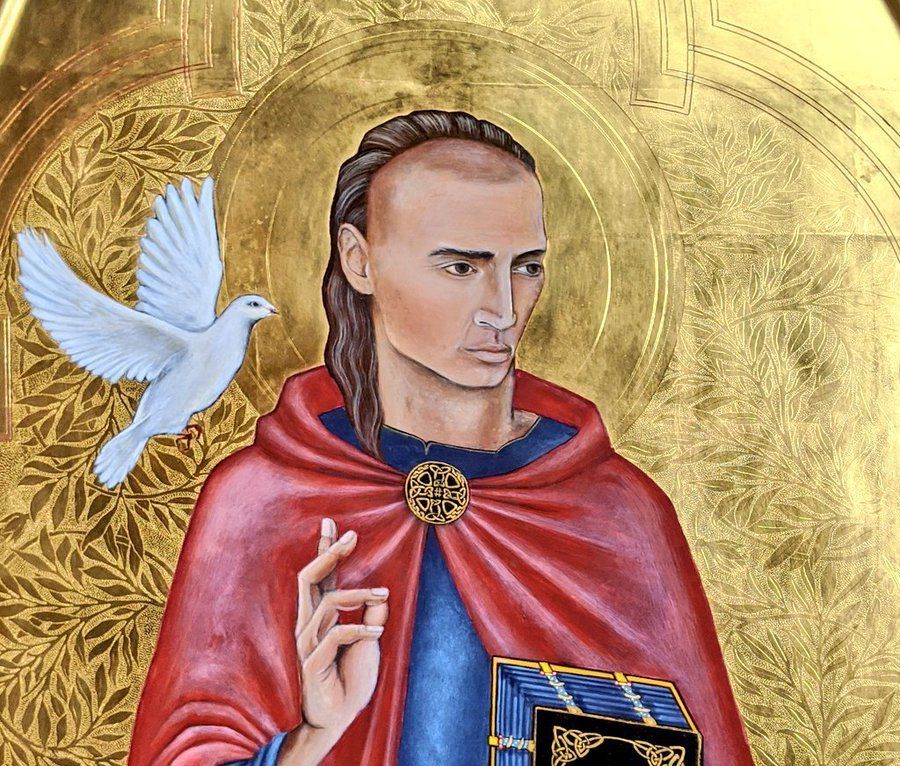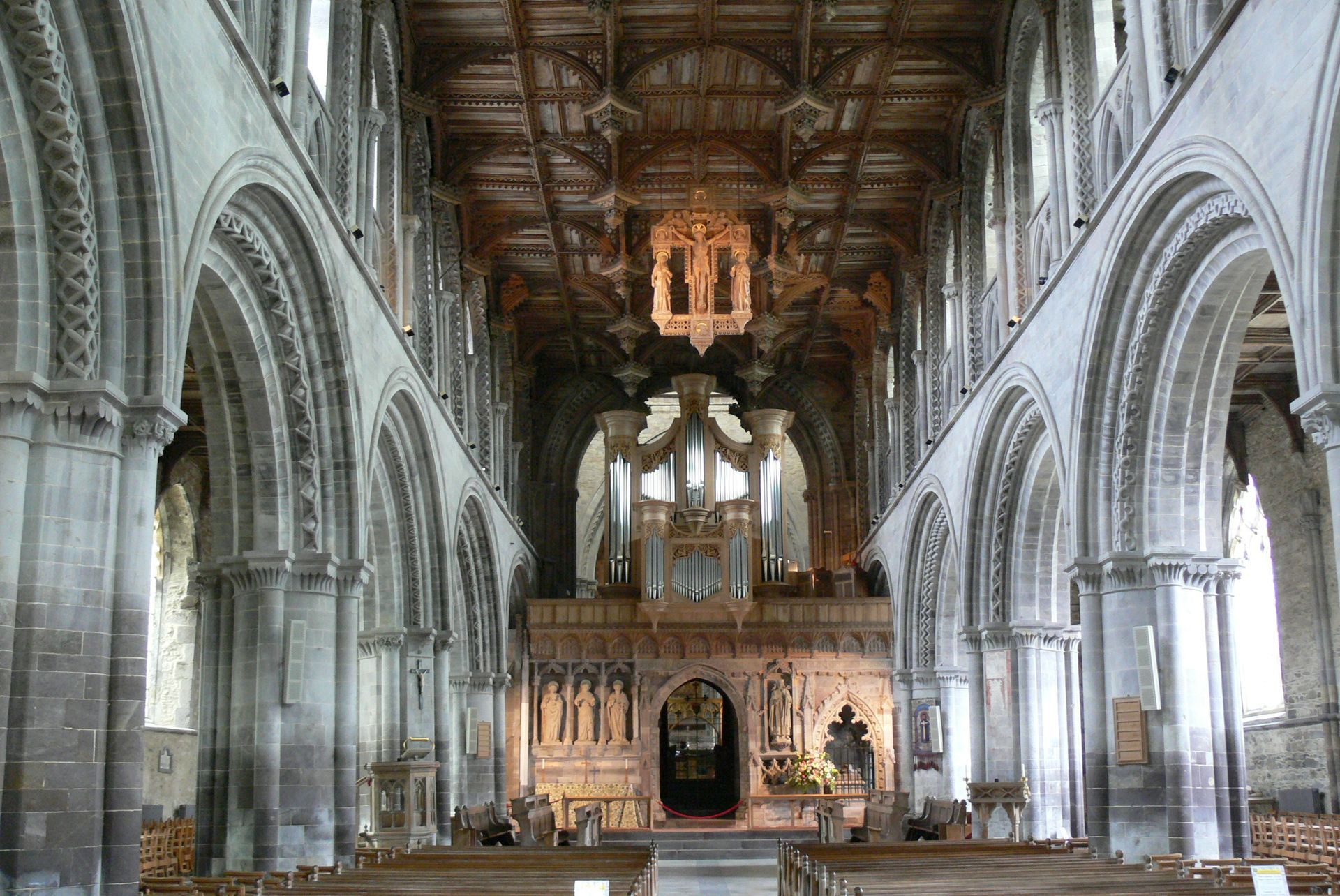Message of Abbot Paul - Friday - 1st March 2024
Abbot Paul • February 29, 2024
March 1st has been kept as St David’s Day since his canonisation was confirmed by Pope Callixtus II in 1120. He is believed to have died on this day in 589 and from 12th Century onwards has been considered the Patron Saint of Wales. David (Dewi in Welsh) was born to a noble family in West Wales in the early part of 6th Century and founded a monastery at Glyn Rhosyn (the Vale of Roses), St David’s, which was to become one of the most important centres of Christianity in Britain. As a bishop, he strongly opposed Pelagianism, both at the famous Synod of Brefi in 550 and at the Synod of Caerleon in 569, and so was regarded as the leading bishop of the Welsh Church. His tomb can still be venerated at St David’s Cathedral in Pembrokeshire. In the Middle Ages, two pilgrimages to St David’s were considered to equal one to Rome. There was even a pilgrimage route from Hereford to St David’s. The centuries haven’t dimmed our affection and admiration for our patron saint.
Today’s Gospel passage (for the Feria, not the Feast) comes from Matthew, (Mt 21: 33-43, 44-46), and it’s the Parable of the Vineyard, or rather of the Landowner whose vineyard it was. Jesus addresses this parable to the chief priests and elders of the people. These are his words: “Listen to another parable. There was a man, a landowner, who planted a vineyard; he fenced it round, dug a winepress in it and built a tower; then he leased it to tenants and went abroad. When vintage time drew near, he sent his servants to the tenants to collect his produce. But the tenants seized his servants, thrashed one, killed another and stoned a third. Next, he sent some more servants, this time a larger number, and they dealt with them in the same way. Finally, he sent his son to them. ‘They will respect my son’ he said. But when the tenants saw the son, they said to each other, ‘This is the heir. Come on, let us kill him and take over his inheritance.’ So they seized him and threw him out of the vineyard and killed him. Now when the owner of the vineyard comes, what will he do to those tenants?’ They answered, ‘He will bring those wretches to a wretched end and lease the vineyard to other tenants who will deliver the produce to him when the season arrives.” This is where the parable ends. It’s a rather violent story and probably quite true to life on the outposts of the Roman Empire at the time of Jesus. We Christians today tend to see the landowner as God and his son as Jesus, but it was addressed to the religious leaders of Israel. How did they read it? They probably thought that they were the landowners. Although the details are very realistic, it’s important to realise that parables aren’t allegories and we should be careful lest we fail to see the wood for the trees. Nevertheless, it is about rejection, the rejection of Jesus by the chief priests and elders of the people, a rejection that was still a painful reality for the early Christian community in Jerusalem.
Jesus goes on to quote from Psalm 117 (118):
“It was the stone rejected by the builders
that became the keystone.
This was the Lord’s doing
and it is wonderful to see?”
He then warns them, “I tell you, then, that the kingdom of God will be taken from you and given to a people who will produce its fruit.” Their reaction is predictable:
“When they heard his parables, the chief priests and the scribes realised he was speaking about them, but though they would have liked to arrest him they were afraid of the crowds, who looked on him as a prophet.” Now the Gospel isn’t simply an historic text relating past events. It is the living word of God that speaks to us now and brings salvation to God’s world. The Gospel asks us questions that we need to answer. To begin with, are we a people, am I a person, that produces the fruit that God is looking for? What sort of harvest will God find in me? Secondly, how do I look on Jesus? Do I accept his word? Do I follow his example? Is he the Lord of my life? From reading the Gospel we know all about the chief priests and the leading religious leaders in Jesus’ day, but, more importantly, what do we know about ourselves? Where and how do I stand before God?













